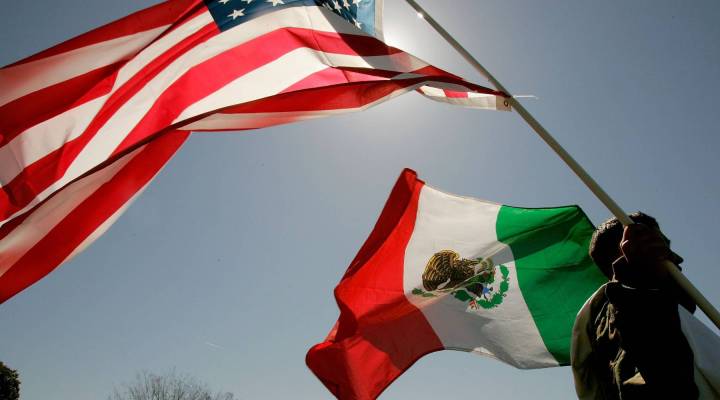
Mexican auto makers hopeful, with movement on U.S. trade agreement
Mexican auto makers hopeful, with movement on U.S. trade agreement

The Trump administration has been negotiating a new trade deal with Mexico that’s designed to encourage car companies to make more of their products in the United States. In the 20 years since the North American Free Trade Agreement, manufacturers have turned to the cheaper labor pool south of the border for more affordable cars and car parts.
Under the Trump administration’s preliminary terms with Mexico, more Mexican-made car parts would come from factories where the pay is at least $16 per hour. The terms, according to the U.S. trade office, would require car companies to pay a 2.5 percent tariff if not enough parts meet the wage requirement.
There are few publicly available details about how the wage requirement would be enforced, and it’s not entirely clear how the U.S. Commerce Department would determine if a company doesn’t comply with the rule.
But “if that’s the case, 2.5 percent in a vast majority of cases is going to be cheaper than raising the wage in Mexico to $16 per hour,” said Kristin Dziczek, an economist with the Center for Automotive Research, a Michigan-based think tank.
On a recent Sunday afternoon, Oscar Garcia steered his car down a highway surrounding the heart of Mexico City. Garcia, who makes just under $10 per hour, is the facilities manager at a nearby car parts manufacturer called Rassini. He pointed at cars that use parts from his company: BMW, Jeep, and Ford.
In many cases, these cars are assembled in the U.S. with Mexican-made components.
“That Explorer,” Garcia said, pointing at a black SUV, “is assembled in the U.S.” Rassini makes suspensions for the Ford Explorer, which is then assembled at a plant in Chicago and exported to several countries, including Mexico.
Mexican government statistics show less than 1 percent of the country’s working population earns at least $16 per hour. Mexican manufacturers are unlikely to raise wages to that level, said Manuel Montoya, president of an association of car part makers in the industrial city of Monterrey.
Montoya said he wishes the terms were more favorable to Mexican businesses, but he’s relieved that after a year of negotiations, the United States and Mexico are close to an agreement.
“Now we can plan,” he said.
Montoya’s plans may need to be flexible. Congress has to ratify any deal, and it’s not clear whether this bilateral agreement would get enough votes without including Canada as part of a broader NAFTA replacement.
Mexico City’s Interior Circuit, which loops around the city’s central core, is full of American brand names and U.S.-built cars. Mexico was the fourth-biggest market for American car exports last year, after Canada, China and Germany, according to the U.S. Department of Commerce.
Garcia, the auto plant manager cruising down the highway, hopes the United States will realize that what’s good for its neighbors is good for the American economy, he said.
But, he added, Mexicans should keep working hard so that their own industry will grow — with or without the United States.
There’s a lot happening in the world. Through it all, Marketplace is here for you.
You rely on Marketplace to break down the world’s events and tell you how it affects you in a fact-based, approachable way. We rely on your financial support to keep making that possible.
Your donation today powers the independent journalism that you rely on. For just $5/month, you can help sustain Marketplace so we can keep reporting on the things that matter to you.


















